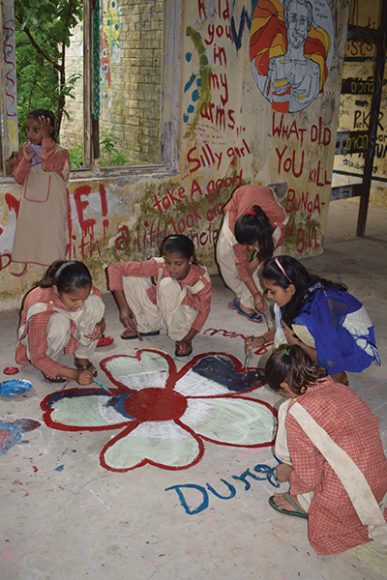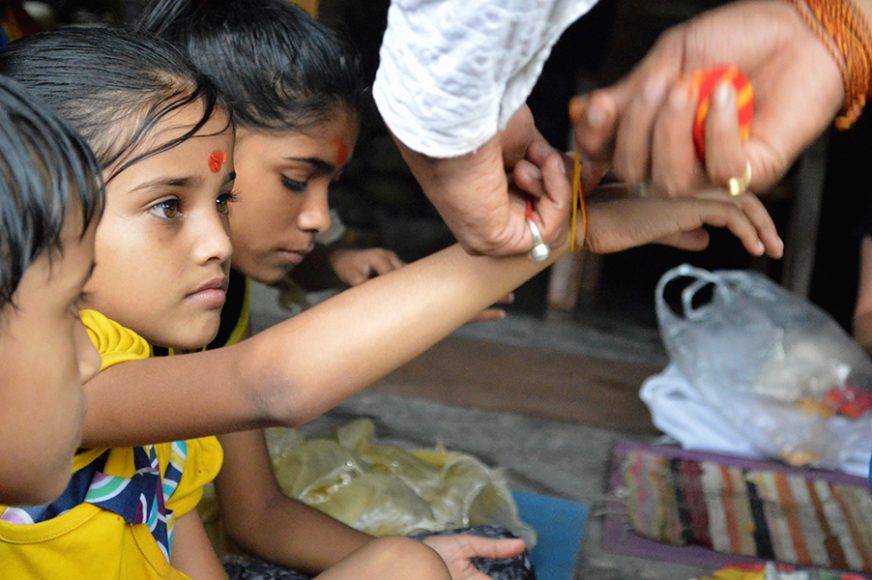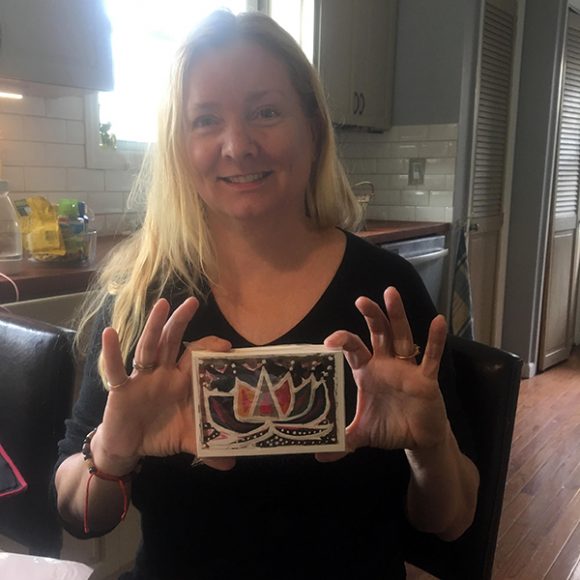When Truike Boekholt left for a month-long, teacher-training course in Rishikesh, India, she expected an enlightening experience.
The sacred city, which is tucked away in the scenic foothills of the Himalayas, adjacent to the holy Ganges River, is home to a host of temples and ashrams and has become internationally known for its yoga retreats. (One of these sites is The Beatles Ashram, now a museum where the Fab Four practiced transcendental meditation in the 1960s.)
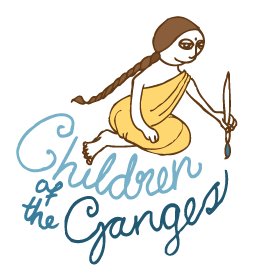
But every day, as the Netherlands-born, Mamaroneck resident returned from her schooling, Rishikesh tugged at her heartstrings. The city’s street children would follow her, sometimes in droves, desperately begging for food and money behind tired, innocent eyes.
“Every day, I would see these little kids in the street walking around and they would just follow you,” she says. “I had my own kids at home and they were then 9 years old (twins, a boy and a girl, now age 14), and I saw my kids’ faces in their faces.”
This was some eight years ago. Fast-forward to the present and Boekholt is now celebrating the seventh year of Children of the Ganges, her Rishikesh-based nonprofit offering night schooling and warm meals to 44 children, six days a week.
“After graduating from the teacher training, I thought I needed to do something productive,” she says. “I thought, ‘I am the teacher, these are the students and this is the school.’”
The school, which is currently housed in the basement of a local hotel, holds classes from 4 to 7 p.m., Mondays through Saturdays, with occasional extracurricular activities offered on Sundays. The classes are split between two age groups — ages 5 to 10 and 11 to 16 — with males and females seated separately in the same classroom. They learn a number of subjects, from English, Hindi and math to yoga, kathak (classical Indian dance), art and nature. Several staff members, including a head teacher, an assistant teacher and a yoga instructor, lead the school.
And before they leave for the day, every child is fed a nutritious dinner.
“One of the things I decided is that these children can’t go to bed hungry,” Boekholt says. “So, after class we feed them a warm meal. They eat so fast, without even talking. They always finish their plates, they’re always happy and they always want seconds.”
Plans for the school came together unexpectedly, but unfolded naturally. After meeting a street child named Aarti, Boekholt was shown a hand drawing of a lotus flower, which she offered to purchase from the young girl. Boekholt, who has worked at the United Nations International School as a music teacher for the past 13 years, purchased some small paint palettes and other supplies from a local bookstore, inviting more children to create. To help them better concentrate on their work, she offered them meals at a local restaurant.
“If you’re hungry, how can you even do anything?” Boekholt says.
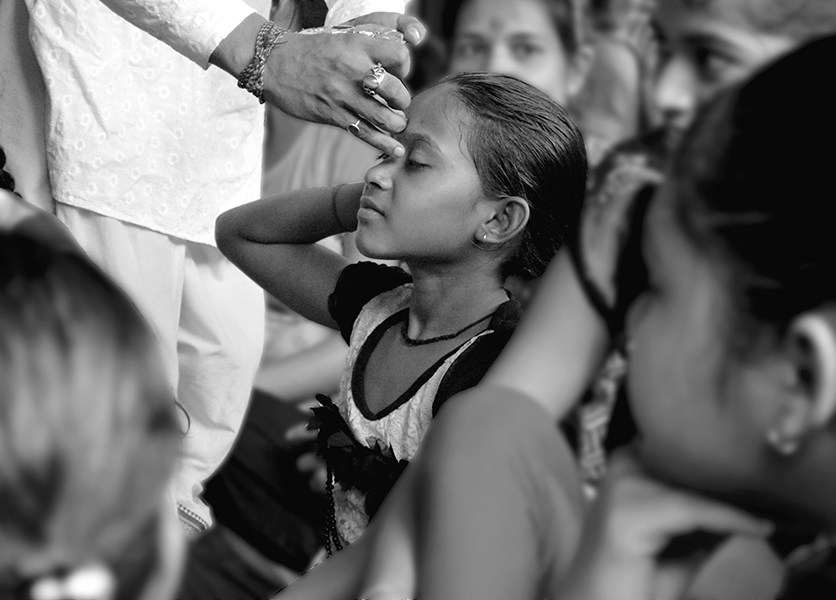
She brought these drawings — which were made using “holy water” from the Ganges River — with her to the United States. Shortly after, she spoke with a neighbor, who happened to be a graphic designer and offered to make greeting cards using the children’s drawings. Boekholt sold the cards to friends, family and colleagues and, soon enough, raised some $2,000, which she brought to India the following year, along with two book-filled suitcases.
The school has been growing ever since.
As Children of the Ganges is nearing the end of its lease in the hotel, Boekholt hopes to create a new space. With the help of volunteers, she is working to design a one- to two-room bottle school, an eco-friendly building made using recycled plastic bottles that are then stuffed with garbage as a substitute for bricks. The school, which she plans to open in March 2019, is a cost-effective dream that will help clean the community, but with 3,000 to 4,000 densely packed bottles required for a single room, it will prove labor intensive.
“One bottle can take up to an hour to fill,” she says. “It has to be sturdy.”
To raise funds for her nonprofit, Boekholt continues to sell the art cards, along with other Indian-made products. She holds annual service retreats, where volunteers can travel to Rishikesh to help with the school’s day-to-day affairs. March 3, she’s holding her second benefit at Tovami Yoga in Mamaroneck, where guests can practice yoga, browse an Indian bazaar and color each other with vibrant powder in honor of India’s Holi festival. Known as the “festival of colors,” it is traditionally held March 2 to celebrate new beginnings. The suggested donation is $40. (And it’s well worth it, as one student’s daily meal costs just 55 cents, according to Boekholt.)
Children of the Ganges is a challenge — especially with plans underway for the construction of the new school — but for Boekholt, the return is invaluable.
“It feels like something I’m supposed to do,” she says. “We only have a limited amount of time, right? And so, I feel like I did something useful. And the kids’ smiles are just priceless.”
For more on Children of the Ganges, including opportunities to donate and volunteer, visit childrenoftheganges.com. To donate to the bottle school, visit gofundme.com/bottleschoolCofG. To register for the event hosted by Tovami Yoga, visit tovamiyoga.com.

